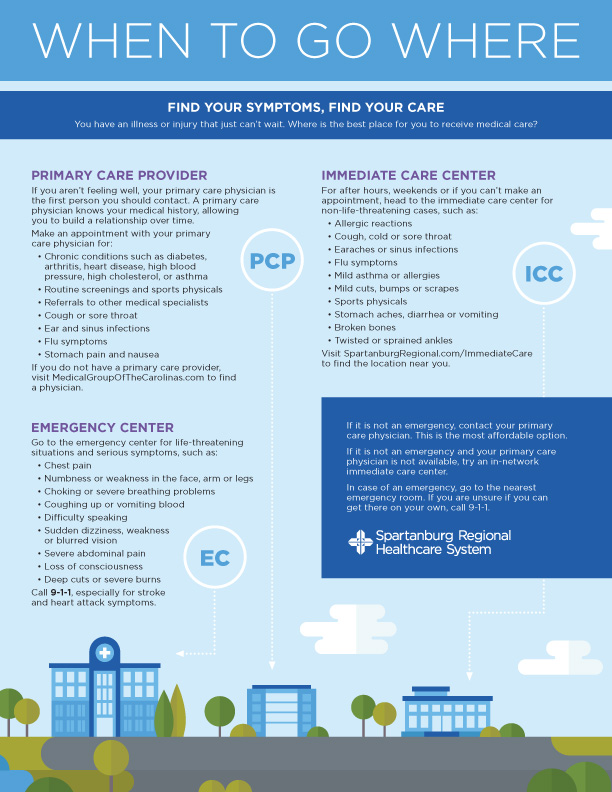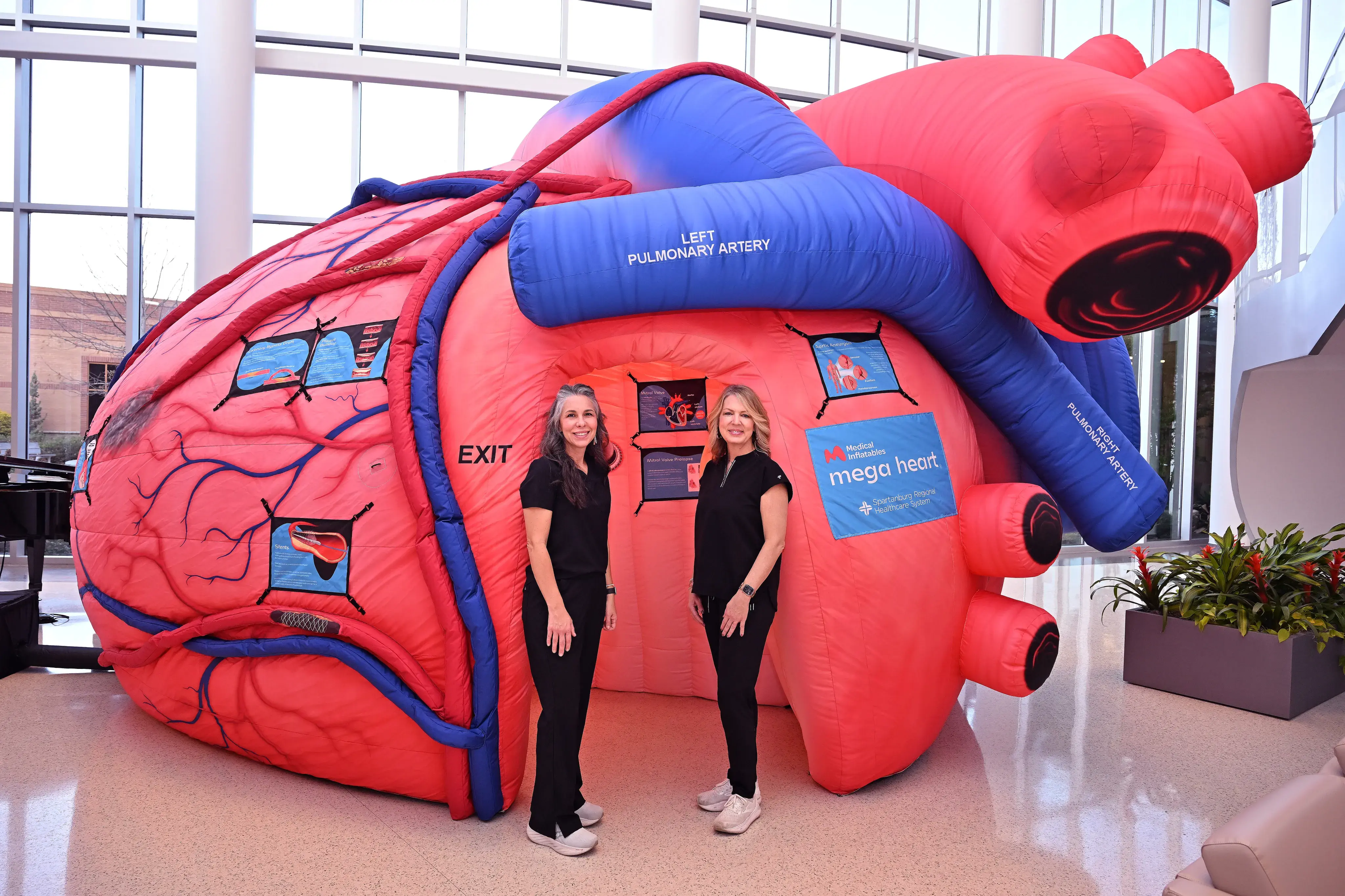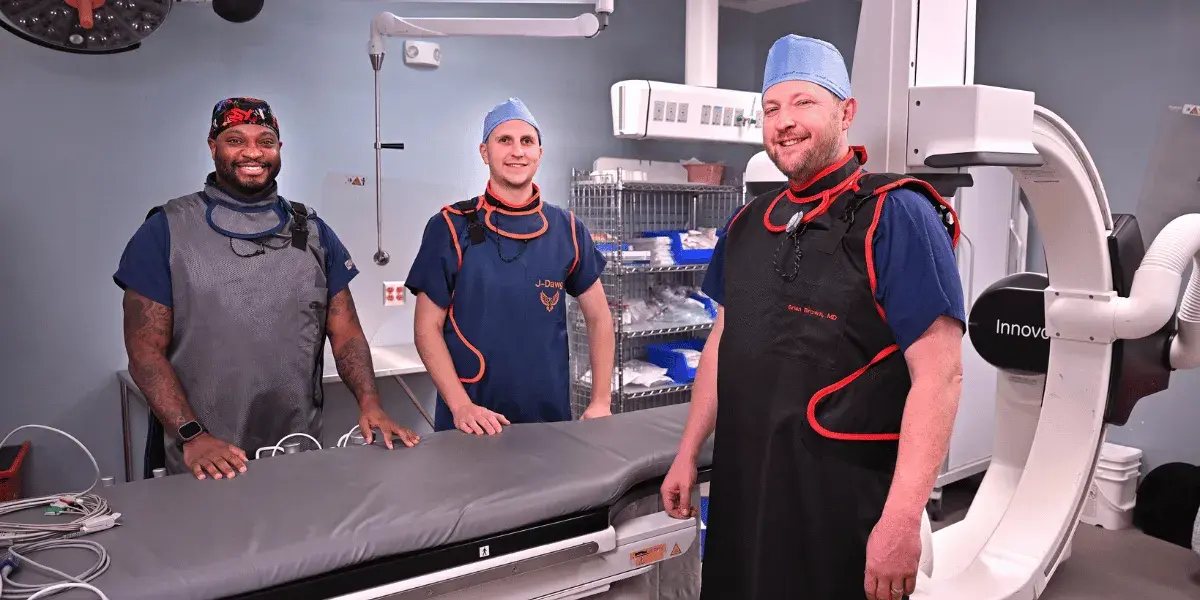
When to go where?
When you get sick, it can be difficult to figure out when to see a doctor — or where to go?
When considering care, chief medical officer of quality, Chris Lombardozzi, MD, says many people consider the time of day, such as day of the week, holidays, or work schedules, rather than basing their needs on the medical issue.
“It really ought to be based on the kind of problems you have and the type of care that you're going to need,” he said. “Things like sore throats, sore throats with fevers, for kids ear aches, respiratory illnesses that have fevers, a lot of that can be handled in an urgent care or a primary care office.”
Other issues, like heart attacks, stroke symptoms or traumatic injuries should be cared for in an emergency setting.
This infographic will help you select where to go the next time you need a doctor:
Infographic

Find Your Symptoms, Find Your Care
You have an illness or injury that just can't wait. What do you do? Where is the best place for you to receive medical care?
Primary Care Physician
If you aren't feeling well, your primary care physician is the first person you should contact. A primary care physician knows your medical history, allowing you to build a relationship over time. Make an appointment with your primary care physician for:
- Chronic conditions, such as
- Diabetes
- Arthritis
- Heart disease
- High blood pressure
- High cholesterol
- Asthma
- Routine screenings, including sports physicals
- Referrals to other medical specialists
- Cough or sore throat
- Ear and sinus infections
- Flu symptoms
- Stomach pain and nausea
If you do not have a primary care physician, visit SpartanburgRegional.com to find a physician.
Immediate Care Center
For after hours, weekends or if you can't make an appointment, head to the immediate care center for non-life-threatening cases, such as:
- Allergic reactions
- Cough, cold or sore throat
- Earaches or sinus infections
- Flu symptoms
- Mild asthma or allergies
- Mild cuts, bumps or scrapes
- Sports physicals
- Stomach aches, diarrhea or vomiting
- Broken bones
- Twisted or sprained ankles
Learn more about Immediate Care Centers in the Upstate.
Emergency Center
Go to the emergency center for life-threatening situations and serious symptoms, such as:
- Chest pain
- Numbness or weakness in the face, arm or legs
- Choking or severe breathing problems
- Coughing up or vomiting blood
- Difficulty speaking
- Sudden dizziness, weakness or blurred vision
- Severe abdominal pain
- Loss of consciousness
- Deep cuts or severe burns
Call 911, especially for stroke and heart attack symptoms.
Remember
- If it is not an emergency, contact your primary care physician. This is the most affordable option.
- If it is not an emergency and your primary care physician is not available, try an in-network immediate care center.
- In case of an emergency, go to the nearest emergency room. If you are unsure if you can get there on your own, call 911.












